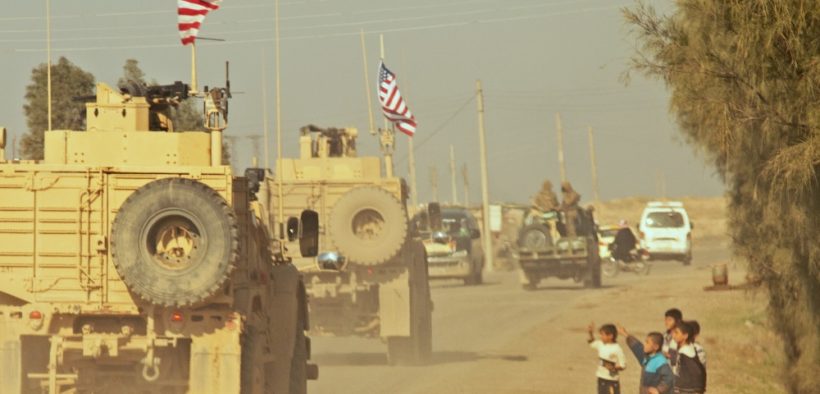Trump Keeping Some US Troops in Northern Syria to Protect Oil

US troops may be on the move, but instead of returning to the U.S. they are being redeployed to other regions in the Middle East.
U.S. President Donald Trump signaled on Monday his country’s plan to keep some American troops in northern Syria, a move that is said to safeguard oil fields in the region. Palestinian Arabic-language Maan News Agency reported on Tuesday that Trump’s announcement came after both Jordan and Israel, neighboring countries of Syria, requested the U.S. to remain in the region.
The Washington Post quoted Trump, while speaking at the White House, as saying that he still wants to withdraw all U.S. troops from Syria, but added “we need to secure the oil.”
US Officials Clarify Trump Remarks
Meanwhile, Defense Secretary Mark Esper echoed similar remarks during a visit to Afghanistan on Monday before he headed for Saudi Arabia. Esper said, “The plan to leave some troops in Syria is aimed at giving the president maneuver room. Though the plan, including the number of troops to be left, is yet under discussion.”
Esper told reporters, ahead of his visit to Saudi Arabia, that positioning some troops around oilfields in northern Syria, would mainly make sure that the Islamic State terrorist fighters can’t regain control over those oilfields and the revenues they generate.
Esper maintained that despite the U.S. troop withdrawal from the Kobani area, U.S. air forces are keeping some air patrol over Syria. He made clear that the U.S. is using overhead surveillance to monitor a recent U.S.-brokered ceasefire, made last Thursday, in northern Syria during an intense Turkish military offensive in the region.
Despite President Trump’s insistence that U.S. troops should return home from what Trump has termed endless wars, Esper hinted at the possibility that U.S. troops would move to western Iraq, where troops could continue the fight against the Islamic State’s terrorists in northern Syria.
Trump’s acting chief of staff, Mick Mulvaney, also told Fox News Sunday that troops will “eventually” get home, and “the quickest way to get the troops out of danger was to get them into Iraq.”
Trump Troop Withdrawal Angers Some
Two weeks ago, prior to the Turkish military operation in northeastern Syria, Trump ordered the withdrawal of 1,000 U.S. troops from the region.
The troops’ pullout sparked criticism by a number of American officials, including members of his own Republican Party and House Speaker Nancy Pelosi. It has also angered the Kurds, who have fought the Islamic State (ISIS) for years, alongside the U.S. troops.
On Sunday, during a visit along with a group of American legislators to Jordan over the Syrian crisis, Pelosi met with Jordanian King Abdallah II, who in turn emphasized the need to safeguard Syria’s territorial integrity and ensure a safe return of all Syrian refugees.
The Turkish assault on northern Syria has so far claimed the lives of 120 people and displaced about 300,000 others, according to the London-based Syrian Observatory for Human Rights.
On the Move to Iraq
In 2011 the U.S. pulled troops out of Iraq after combat operations there ended. In 2014 the U.S. returned approximately 5,000 American troops to Iraq when ISIS elements regained control over large swaths of the country.
Iraqis largely view the American presence in Iraq as an occupation because of the U.S. invasion of Iraq in 2003 which put an end to the long-time regime of late president Saddam Hussein, who the U.S. falsely accused of stockpiling and using weapons of mass destruction. Saddam was later sentenced to death by an Iraqi court for crimes against humanity for the murder of Iraqi Shiite Muslims in 1982.
National Public Radio (NPR) reported on Monday that U.S. forces left a base in Turkey and moved to the Iraqi Kurdish city of Erbil. It also reported that thousands of refugees were seen crossing the border, en-route to Iraq.
Also on Monday, the Kurdish-led Syrian Democratic Forces (SDF) was reported by NPR as alleging that Turkish forces had breached the terms of the U.S.-mediated ceasefire. The SDF said that violent clashes between the Turkish-aligned forces and the SDF resulted in casualties.
“With the U.S. withdrawing troops, our people will likely be slaughtered,” Kurdish commander Mazlum Kobani said, warning of what he described as “ethnic cleansing of the Kurdish people from Syria.”















